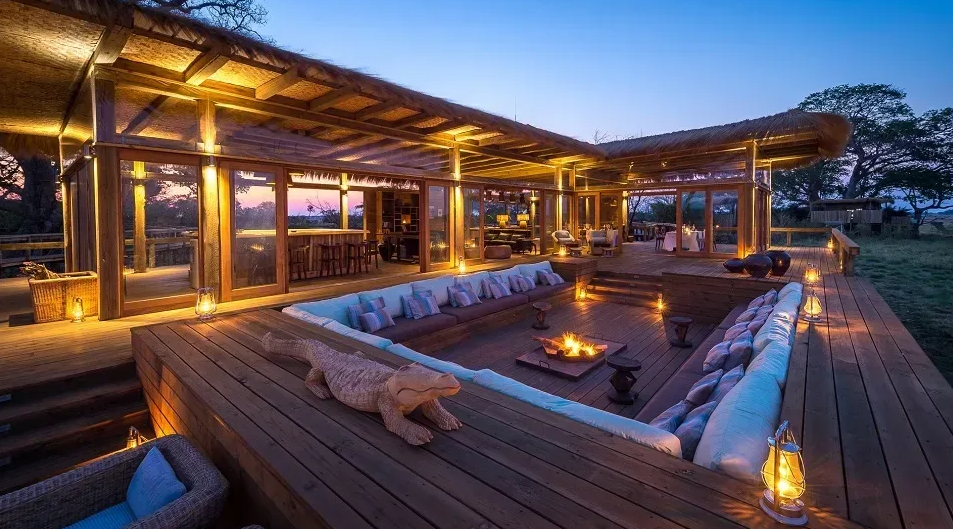Nestled in the heart of Zambia, North Luangwa National Park stands as a pristine oasis, teeming with wildlife and rich biodiversity. This comprehensive guide explores the wonders of this African gem, from its diverse ecosystems to its conservation efforts and the experiences it offers to visitors.
Introduction to North Luangwa National Park
Established in 1972, North Luangwa National Park covers an expansive area of approximately 4,636 square kilometers (1,791 square miles). It forms part of the Great Rift Valley system and is renowned for its remote wilderness, making it a haven for those seeking an authentic African safari experience away from the crowds.
Geography and Ecosystems
North Luangwa National Park encompasses a variety of landscapes, ranging from dense woodlands to open grasslands and riverine forests. The park is traversed by the meandering Luangwa River, which serves as a lifeline for its inhabitants during the dry season.
The riverine forests along the banks of the Luangwa River provide vital habitat for an array of species, including elephants, hippos, and various bird species. In contrast, the grassy plains support large herds of buffalo, zebras, and antelopes such as impalas and kudus.
Wildlife
North Luangwa National Park is renowned for its impressive wildlife populations, particularly its healthy populations of predators such as lions, leopards, and spotted hyenas. The park is also home to endemic species such as the Cookson’s wildebeest and Thornicroft’s giraffe, found only in the Luangwa Valley.
Visitors to the park have the opportunity to witness the Big Five, including African elephants, Cape buffaloes, and black rhinos. Additionally, North Luangwa is a birdwatcher’s paradise, with over 400 bird species recorded within its borders, including the iconic African fish eagle and colorful Lilian’s lovebird.
Conservation Efforts
North Luangwa National Park is dedicated to the conservation of its natural heritage, with a strong focus on anti-poaching efforts and community engagement. The North Luangwa Conservation Programme works tirelessly to protect the park’s wildlife and ecosystems through rigorous monitoring and patrolling activities.
Community-based initiatives play a crucial role in the conservation efforts of North Luangwa National Park. Local communities are actively involved in conservation projects, providing employment opportunities and incentives for sustainable living practices.
Safari Experiences
A visit to North Luangwa National Park offers an unparalleled Zambia safari experience, with opportunities for game drives, walking safaris, and cultural encounters. The park is renowned for its guided walking safaris, allowing visitors to explore the wilderness on foot under the guidance of experienced and knowledgeable guides.
Walking safaris provide a unique perspective on the African bush, allowing visitors to immerse themselves in the sights, sounds, and smells of the wilderness. Guided by expert trackers, visitors may encounter a variety of wildlife up close, from large mammals to smaller creatures and elusive birds.
Game drives are another popular activity in North Luangwa, offering the chance to explore the park’s diverse habitats and encounter its resident wildlife. Visitors can embark on morning and evening game drives, venturing deep into the bush in search of lions, leopards, and other iconic species.
Accommodation
North Luangwa National Park offers a range of accommodation options to suit every traveler’s preferences, from luxury tented camps to rustic bush camps. These camps provide comfortable amenities and warm hospitality, allowing guests to relax and unwind after a day of adventure in the African wilderness.
Many of the lodges and camps in North Luangwa are designed to blend seamlessly with their natural surroundings, offering an authentic safari experience without compromising on comfort. Guests can enjoy delicious meals prepared with fresh, locally sourced ingredients and relax by the campfire under the starlit African sky.
Best Time to Visit
The best time to visit North Luangwa National Park is during the dry season, from June to October, when wildlife congregates around the Luangwa River and vegetation is sparse, making game viewing easier. However, the park is accessible year-round, with each season offering its own unique rewards and experiences.
Conclusion
North Luangwa National Park is a true wilderness sanctuary, offering visitors the opportunity to connect with nature in its purest form. From its diverse ecosystems to its abundant wildlife and conservation efforts, the park embodies the spirit of African safari adventure.
Whether embarking on a guided walking safari, enjoying thrilling game drives, or simply soaking in the sights and sounds of the bush, North Luangwa promises an unforgettable journey into the heart of wild Africa. With its commitment to conservation and sustainable tourism, the park stands as a shining example of responsible stewardship and the enduring beauty of the natural world.


